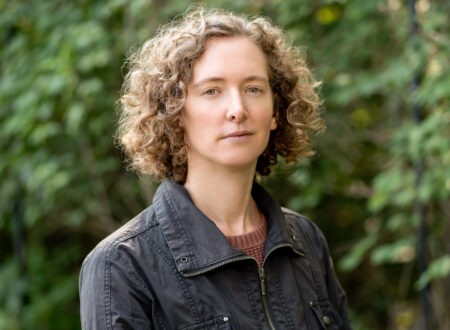What happens when a young person living on reserve wants to attend school off reserve? Or not just wants to, but has to because their reserve doesn’t have a school for their grade level, or doesn’t have a special program they need? This is very common. In fact, about 1 in 3 students living on reserve attend a provincial school off reserve (source: this report).
And sometimes, the reverse happens – students living off reserve want to attend a school on reserve. For example, First Nation students living outside but near their reserve community may want to attend their reserve school to access cultural programming. Or students living off reserve may want to attend a school that is also located off reserve but is a federally-funded school run by a First Nations organization, not run by a provincial school board (like Dennis Franklin Cromarty in Thunder Bay, or Kiizhik School in Kenora, for example).
Previously, this has usually been addressed with informal payments, or with “tuition agreements” or “reverse tuition agreements” between the provincial school board and the First Nation (or other federally-funded school operator, like an education authority or tribal council).
Some of these agreements or informal arrangements worked very well. But difficulties came up too. One difficulty was that nothing really controlled what school boards could charge for special education services. Some provincial boards were over-charging First Nations, for instance by demanding more money than the school board would receive from the province if that same student lived off reserve. Some students were refused access to schools they wanted or needed to attend. And, on the flip side, some First Nation schools were receiving no funding for enrolling students living off reserve.
These kinds of problems negatively impacted First Nations, as well as students and families, and had a disproportionate effect on children with special needs. For example, this 2017 report on First Nations special education called for action.
This school year, a new approach to this issue is starting in Ontario. The changes have been in development since the 2017 report linked above. The province recently announced that the changes came into effect starting September 1st. They are found in a new provincial regulation called the Reciprocal Education Approach, along with corresponding updates to Ontario’s Education Act.
The changes mean that provincial school boards have to accept and enrol First Nations resident on reserve if the necessary paperwork is completed. And they cannot over-charge; the tuition payment is now fully regulated. Tuition agreements are no longer needed as far as tuition amounts are concerned.
The changes also mean that First Nations schools can accept students living off reserve, and if they do, they can rely on receiving the same standardized tuition amount. The school board cannot refuse to pay it. The list of eligible First Nations schools is here, as well as in the regulation itself.
This will make it easier for families who want or need their child to attend school across the on/off reserve divide. Only a signed notice is required, signed by the parent and the operator of the relevant First Nation school.
This summary sheet has an overview for families on how to use the Reciprocal Education Approach. That summary sheet has links to the notice forms. The notice forms can also be found here (scroll down to the end).
The updates to the Education Act now in force also include a new guarantee of equality of services. If a school board admits a student from a reserve, it “shall provide that pupil with at least the same services and supports that it would ordinarily provide to a pupil of the board with the same needs” (s. 188(1.6)).
First Nations in Ontario that have agreements with a provincial school board may want to revisit these agreements and consider whether to continue them, end them or change them.
- The default is that existing agreements continue in effect until they expire, or until terminated by a party to the agreement.
- Agreements might still be useful to address additional services (beyond tuition), and the relationship between the First Nation and school board.
- But First Nations may want to narrow or update their agreements with school boards to reflect the new rules and ensure that they are not being over-charged for tuition.
For more information, you can contact your local education providers or the education staff at your First Nation, Education Authority, Tribal Council or PTO. This blog does not provide legal advice. For legal advice, you can contact OKT.
To download a copy of this article, please click here
Related Posts

OKT Podcast - Overview of the Reference on Bill C-92
Tuesday, February 20, 2024
We are excited to introduce the inaugural episode of the OKT podcast!
In this debut installment, Jesse Abell, Krista Nerland, and Judith Rae discuss the intricacies…
Read More...
First Nations: Did some of your members go to residential school?
UPDATED DEADLINE: JUNE 30, 2022
First Nations: Did some of your members go to residential school?
If yes, there is a class action underway now that may apply to you,…
Read More...
OKT proud to work alongside Inuvialuit on their landmark child and family services law
November 25, 2021; updated November 26, 2021
“For the first time in modern history, the Inuvialuit have passed a law for the Inuvialuit.” (NNSL Media, Nov. 24, 2021)
It’s…
Read More...

